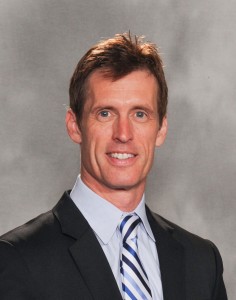JS: I get the sense from a lot of the younger doctors coming out of residency programs that ACEP is almost viewed as serving more the corporate or the business end of emergency medicine rather than the practicing physician. As a result of that, a lot of people don’t even belong to ACEP. I’ve always felt being a member of ACEP was a good thing. Do you feel that some of that is being promulgated in the residency programs?
Explore This Issue
ACEP Now: Vol 35 – No 12 – December 2016ZJ: As a resident with a busy clinical load, sometimes it’s hard to appreciate the effect that ACEP has made in terms of lobbying to make sure that emergency physicians get fair reimbursement and are being treated properly within the health system. I think some residents may not understand the total impact that being part of ACEP has, and I think that one of the challenges is conveying that value to them as they transition out of residency, where their dues are often being paid for them, to demonstrate the value so they’ll continue to pay when it comes out of their own pockets.
RS: Part of our problem with messaging to younger people is maybe we’re not communicating what ACEP really does in terms of preventing things from happening in state capitals and preventing bad things from happening in Washington as well as making good things happen. Any one decision there can make a lifetime of difference for any one doctor and pay for their dues for a lifetime. Many may not know or understand what organized medicine, ACEP for the emergency medicine profession and the AMA in general, really does to make their lives possible, to protect their practice, and help them earn a living.
KK: Listening to Zach’s passion, it’s equal in magnitude but from a different perspective. Richard made a comment about the importance of “carrying the water” by advocating for and leading the specialty, and that resonates with me, and I’m sure it does with others, too. If the younger physicians out there are allowed to participate and carry some of that water, not as a burden but as an opportunity, then will they be more invested in the future of the specialty and with ACEP? We have to look for those opportunities. What would you want people to do so that what you’ve built doesn’t erode and is protected?
HM: Richard speaks about carrying the water, but I think you have to chop the wood, too. I think we have to remember that we don’t exist if there aren’t patients. I had to always remember that they were the reason why we were there, to take care of people, and as long as you remember that the patients are the reason you’re there, then all this other small stuff simply matters a whole lot less.





5 Responses to “Emergency Medicine Founders Discuss Origins of the Specialty, How It’s Changed, and What the Future Holds”
December 18, 2016
Cindy Pearsall Sussman MD FCEPI was sorry to not see a credit given to Dr David Wagner, the real “grandfather of Emergency Medicine” in your article. Dr Wagner was a general surgeon at the Medical College of Pennsylvania in Philadelphia and noted the immense need for an Emergency Medicine residency program. His was the first, and paved the way for many more to come. As a graduate of that program, I am proud to say that we were well prepared for just about anything that came our way. Dr Wagner deserves credit for having the foresight and energy to get the field on its feet.
December 18, 2016
Cindy Pearsall Sussman MD FCEPCorrection- Dr Wagner was a pediatric surgeon
December 18, 2016
MarianKevin,
Thank you for an insightful article regrading the history of emergency medicine and where we are headed.
I find it ironic that there are two articles in this edition of ACEP eNow discussing diversity in emergency medicine, however, your interview panel lacked diversity. I am certain that this was not intentional, but it certainly highlights the unawareness at times of this particular issue.
December 19, 2016
Kevin Waninger MD FACEPEven more important, Dr. David Wagner was a great role model and a really nice man. I am a better doctor, and even more important, a better colleague, friend and father, because of my interaction with Dr. Wagner.
November 22, 2018
Kathleen Nakfoor, Ed.D, MBA, MSIS, RNI had the privilege of working with Dr. John Wiegenstein, MD and Dr. Eugene Nakfoor, MD from 1970 to 1975. I was told “history is being made in this emergency room” and know this to be a fact. I recall working with Dr. Wiegenstein the nights before he head off, yet, to another meeting to battle for EM as a speciality. He entertained us with stories of his less than impressive luggage when checked into the presidential suite. I was well aquatinted with stories of progress being made in EM.
What has been overshadowed by the enormity of ACEP formation and EM becoming a specialty, are the historical changes that were made in emergency department management. I recall Eugene Nakfoor, MD, also a founding ACEP member, telling me stories of the fact no one knew how to bill for services, such a practice was unprecedented. He garnered “departmental status” in which he controlled all hiring and firing of the entire staff.. He and the nurses developed the original scribe system, not the one in existence today. There has never been such a well managed emergency department using the scribe; actually a pivotal individual with whom the department was organized.